Most travellers have Osaka high on their list of cities they would like to visit in Japan. It is similar to Tokyo in that sense, as both are known as financial centres and have a super-modern vibe. But it is Osaka that is seen as Japan’s culinary capital, with the best dishes like okonomiyaki (pancake) or grilled octopus, takoyaki. And don’t forget to take a look in the charming Dotonbori or Amerika-Mura district.
Are you planning a visit to Osaka? In this travel guide, I will take you to the city’s best sights, discover the best accommodation and find out more about the special culture and history of this culinary city in Japan. A history-rich visit to Osaka starts here
This Travel Guide to Osaka contains affiliate links. This means that if you make a booking through one of the links on this website, Travel4history gets a small compensation for it. This does not cost you anything extra by the way!
In this Travel Guide to Osaka
Useful Websites Osaka & Japan
- Accommodation Osaka: Agoda, Booking
- Tours & Tickets: Getyourguide Explore Osaka
- Flight Tickets Japan: Jetradar
- Train Tickets: Japan Railway Pass
- Rental Car: Rental Cars
This page about Osaka contains affiliate links. This means that if you make a booking through one of the links on this website, Travel4history receives a small compensation. This is at no extra cost to you!
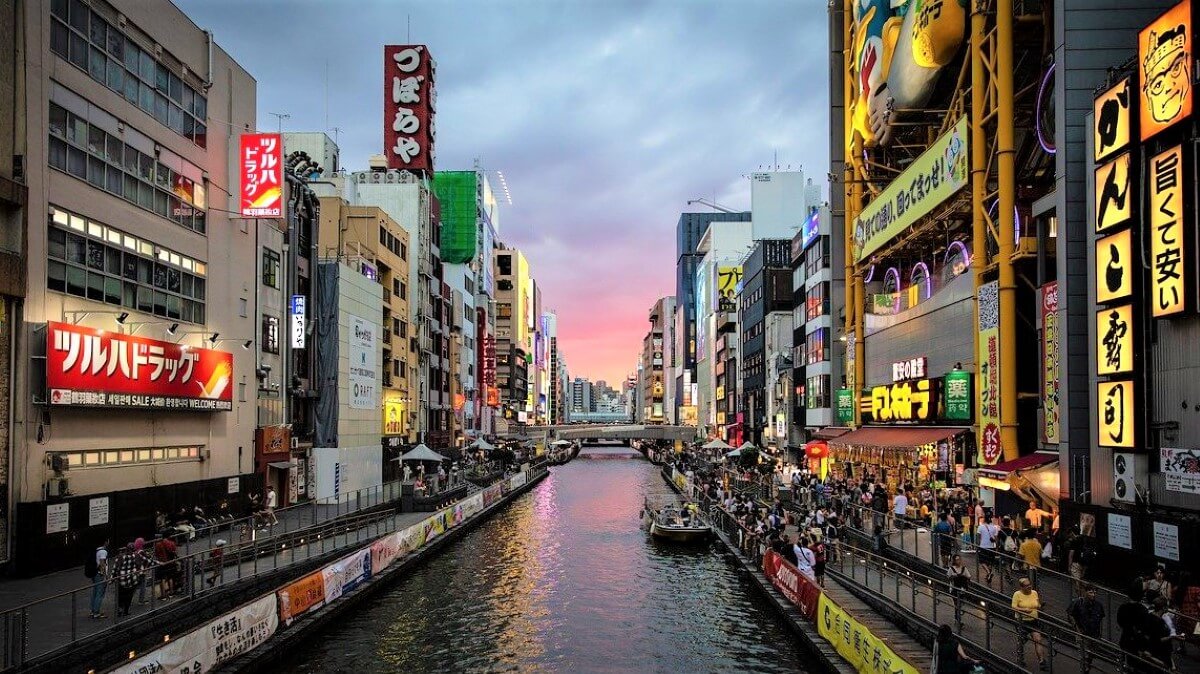
A Brief History of Osaka, Japan
Known as the water city of Japan, Osaka played a major role in the history of the country’s political and economic rise. Throughout history, Osaka has been known as an international city. Thanks to the many rivers, canals, and infrastructure that crisscrossed the region, the city became an important place for trade and commerce.
In the sixth to eighth centuries, important ports were built that connected all the imperial cities in Japan, eventually making Osaka the military center of the country. Therefore, many leaders tried to gain control of the area. The most notable event is the Siege of Osaka, which took place in 1615.
When Osaka Castle, a symbol of the region’s power, was razed to the ground by the Tokugawa’s (1603-1868) in their quest for control in 1615, they rebuilt Osaka to further develop the city. Thus began the mass migration of merchants, craftsmen, and engineers to the city.
New networks of roads were built solely for the purpose of trade. Eventually, Osaka became a world economic power that briefly surpassed Tokyo. To this day, Osaka is one of Japan’s most important cities.
Top 5 Sightseeing Spots in Osaka, Japan
Osaka is a destination in Japan where you can spend days. Not only in the city but also in the surrounding area you can visit other places, such as Kyoto, Nara, and Kobe. How many days you need for this city is therefore up to you. Below you will find some nice sights that are absolutely worth visiting….
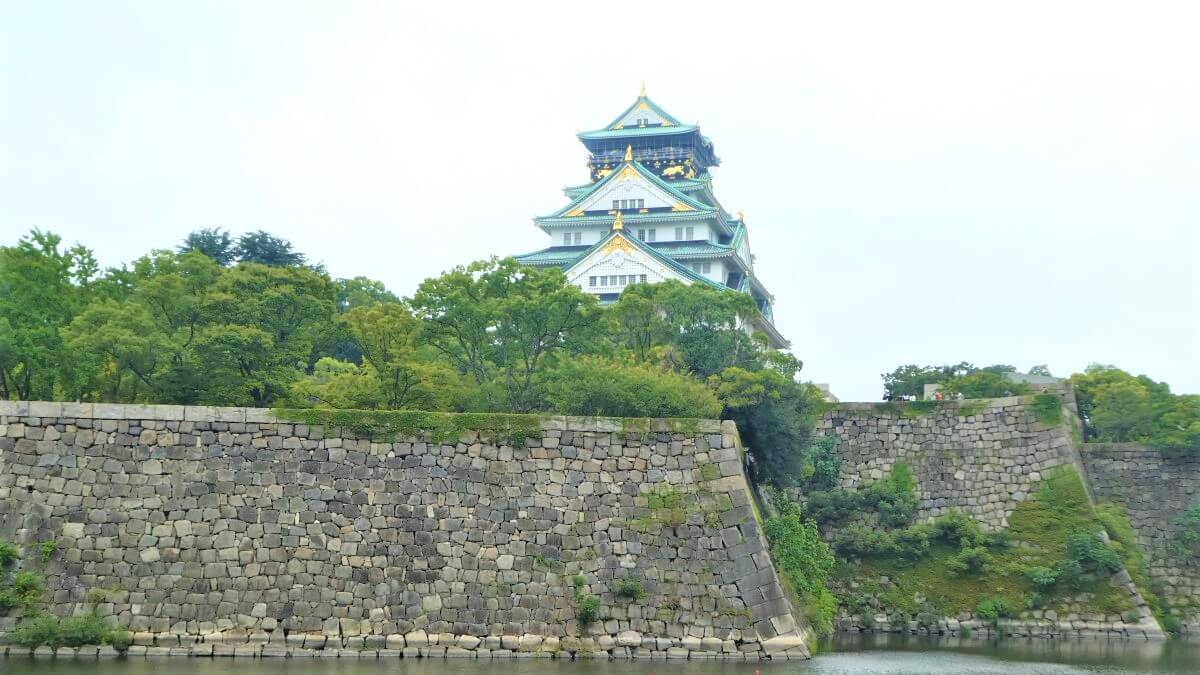
1. Osaka Castle
Osaka Castle is an important historical monument in Japan that represents the greatness of the city. It was built in 1583 to symbolize the unity of Japan’s powerful warlords and took only three years to complete. More than 100,000 workers worked on the project.
Under the reign of Toyotomi Hideyoshi (1536-1598), the castle became the center of the newly unified Japan after centuries of civil wars. The original castle was destroyed during the Siege of Osaka and it was eventually rebuilt by the new rulers, the Tokugawa (1603-1868). It took nine years to build, but the current castle was built after World War II. During the war, much of the building was destroyed.
Now Osaka Castle remains the center of the city. This beautiful place is a popular destination for locals and tourists, especially during the cherry blossom season in April.

2. The city’s most famous street: Dotonbori Street
Anyone who has not seen Dotonbori Street has not been to Osaka. Touristy it certainly is, but this place is the center of entertainment in the city. Here you’ll find great restaurants, shopping streets, and a host of attractions waiting to be discovered. Although today’s Dotonbori is famous for its cacophony of neon lights and bustling spots full of locals and tourists, the history of this place is not that far.
For example, Dotonbori served as the entertainment center of Osaka for over 400 years. This began when a local businessman decided to widen the banks of Dotonbori at the beginning of the seventeenth century to promote trade in the area. As a result, Dotonbori became famous for its theater performances, specializing in kabuki and bunraku theaters. This attracted crowds of people and the rest is history.
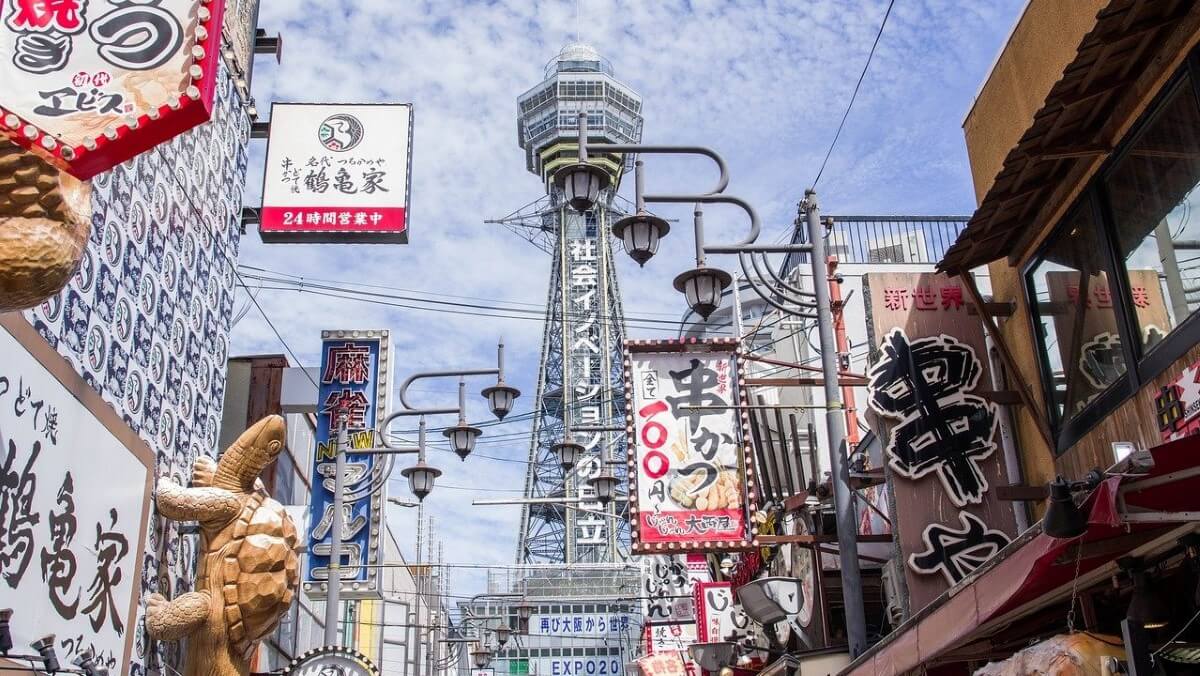
3. Shinsekai, the district of the New World
If there is one place where the past meets the present, it is the neighborhood of Shinsekai. Shinsekai means “New World” and is definitely one of the most unique places you will visit in Osaka. The neighborhood was built at the beginning of the twentieth century and the cities of Paris and New York were the models for this now-famous neighborhood. Everywhere in Shinsekai, you can see a direct resemblance to Coney Island in New York, Paris (with replicas of the Eiffel Tower and Arc de Triomphe), and much more.
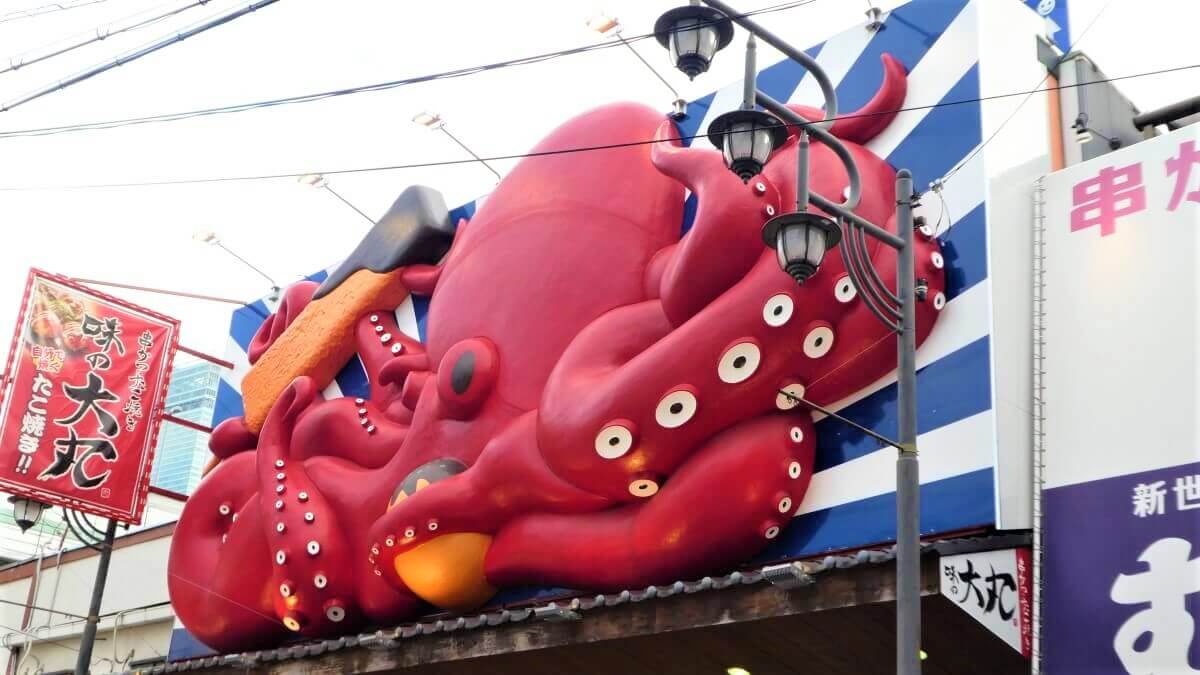
4. Namba Yasaka Shrine, the temple of the great lion
When people think of shrines, they usually think of the architecture of temples. But the Namba Yasaka Shrine breaks that stereotype by having a large lion face that the shrine itself holds between its jaws. This ancient Shinto shrine used to be located in Kawachi Matsubara City. It was moved to its current location during the construction of Osaka Castle around 1600.
This shrine is often visited by students during exam periods and by business owners, at the end of a fiscal year because locals believe that the lion’s maw swallows evil spirits and therefore brings good luck. During the annual festival, a large tug-of-war is held at Namba Yasaka in honor of the giant snake killed by the shrine’s deity who brought harmony and peace to the people of Namba.
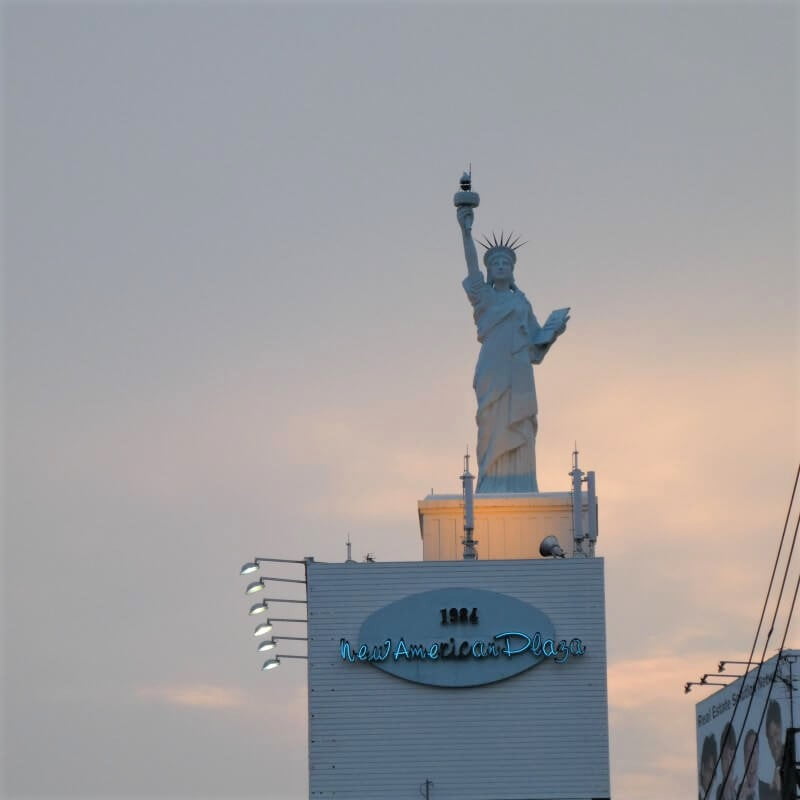
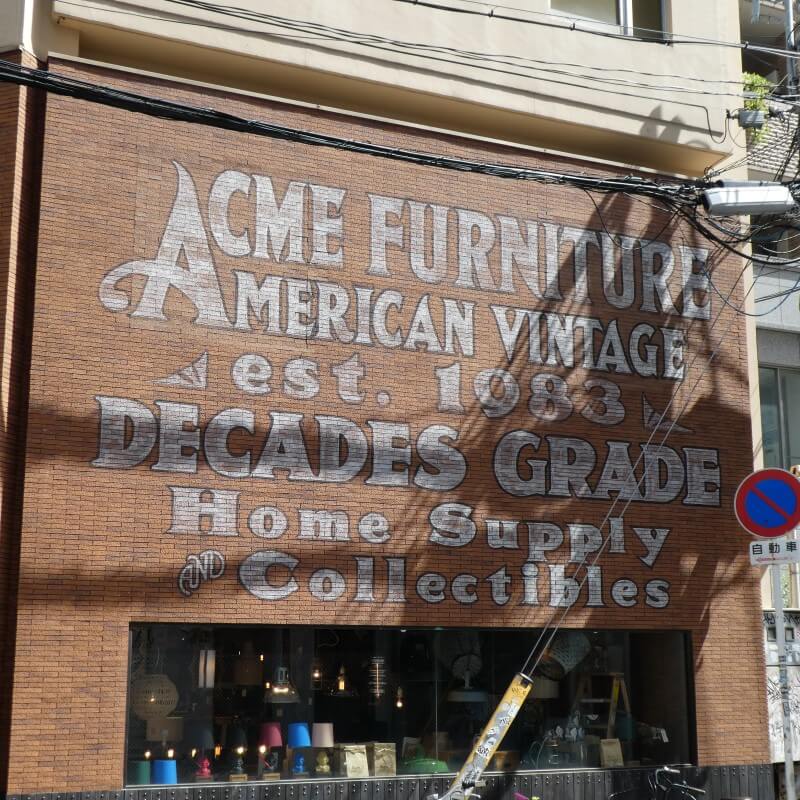
5. America-mura, the American district
America-mura or the American village is considered the young cultural center in Osaka. The district used to be full of empty warehouses and parking lots that were then transformed into a hip place in the center of the city. Throughout the district, you will find large murals depicting the Japanese view of Western culture. If street fashion and avant-garde food are your thing, you should definitely visit this place.

Accommodation – Where to stay in Osaka?
Above you got a good impression of what you can do in Osaka. But where is the best place to stay? I myself stayed at Picnic Hostel Osaka, a great place about 1 kilometer west of Dotonbori Street. The staff is friendly, the rooms are spacious and clean and from here you can explore the city. Be sure to choose accommodation around America-Mura, Dotonbori, or Namba, as you can enjoy great food and the beautiful and atmospheric neon lights here in the evening.
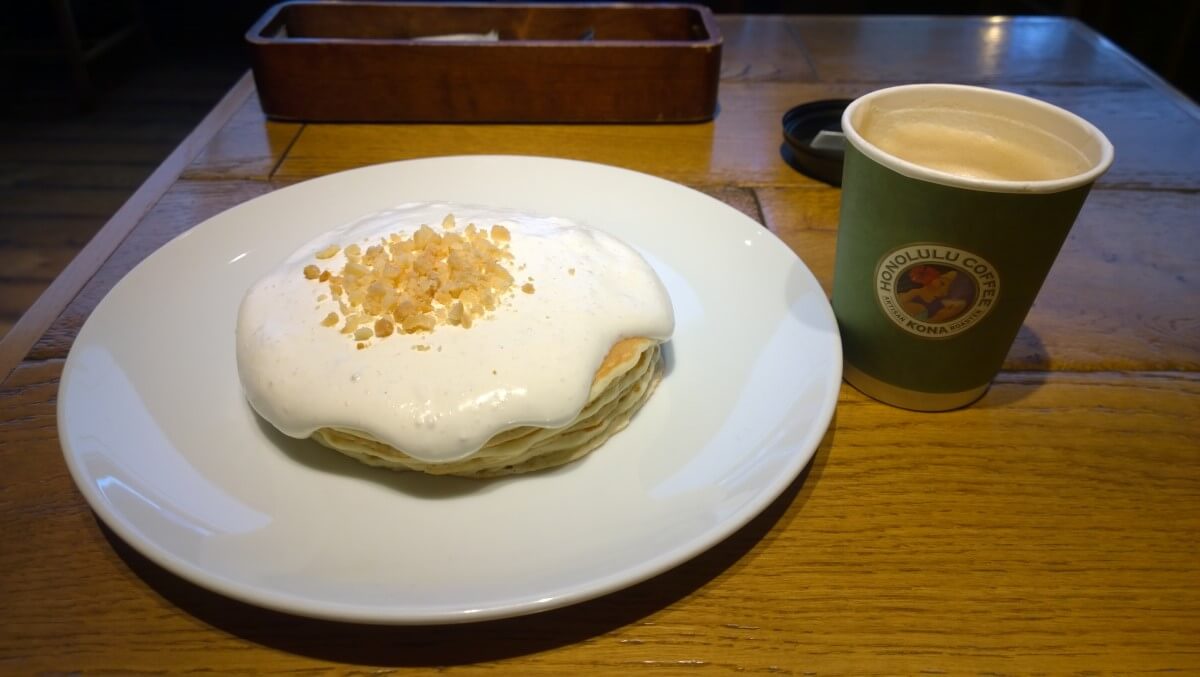
Transport – How to get there?
Osaka’s international airport is called Kansai International Airport. It opened in 1994, is located on an artificial island, and for the time was an expensive project that would have cost over $15 billion. Airlines from all over the world fly to Osaka. By train, you can reach the city center within an hour.
Osaka is easy to reach by train. The city’s largest station is Osaka Central Station and from here you can take the Shinkansen east for Nara, Kyoto, Nagoya, and Tokyo and west for Himeji, Hiroshima, and Nagasaki. In addition, the city also has an excellent subway system consisting of 8 lines. Therefore, this is the best way to discover the culinary city of Japan.

Do you have any tips, comments, or ideas about Osaka, Japan? Then feel free to leave a comment below.